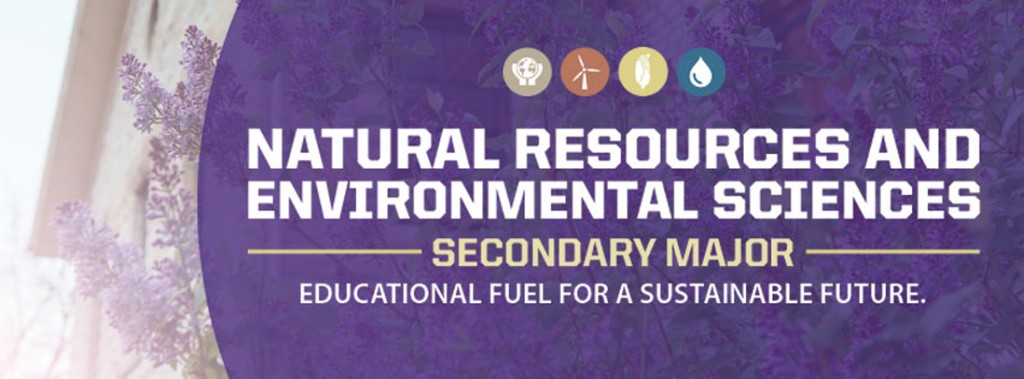Fall 2020 Student Capstone Projects
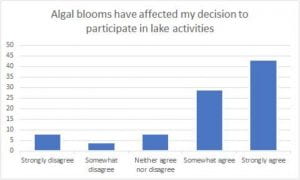
Example of preliminary results from the Marion County Park and Lake User Survey.
Ten students – from seven different majors and four colleges – successfully completed the NRES capstone course in Fall 2020. Students were mentored by Dr. Trisha Moore (Biological & Agricultural Engineering) and NRES Graduate Fellow Amariah Fischer (Geography & Geospatial Sciences).
Students worked on two different projects including “Marion County Park and Lake Citizen Science Project” and “Studying Potential Effects of Changing Climate and Changing Land Cover on Marion County Lake.” Project reports and scientific poster presentations can be viewed and downloaded from the NRES website.
Congratulations to students Luis Avalos (Park Management & Conservation), Shannon Bellamy (Biosystems Engineering), Katlynn Brock (Park Management & Conservation), Alexandra Clark (Agronomy), MacKenzie Cline (Biological Systems Engineering), Trevor Hampton (Civil Engineering), Abigail Mason (Regional & Community Planning), Hunter Mussetter (Philosophy), Logan Romero (Geography & Geospatial Sciences), Aaron Stewart (Park Management & Conservation).
New Faculty Join NRES Board
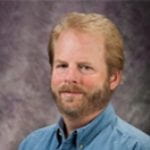
Dr. David Haukos
We welcome Dr. David Haukos (Division of Biology) and Dr. Arnaud Temme (Department of Geography & Geospatial Sciences) as the newest member of the NRES Board of Directors.
Dr. Haukos is the unit leader of the Kansas Cooperative Fish and Wildlife Research Unit whose research focuses on the effects of environmental and habitat changes on wildlife populations. Dr. Temme is an associate professor who studies geomorphology, soil science, landscape evolution modeling, and mountain landscapes.
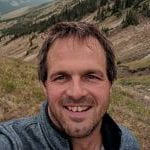
Dr. Arnaud Temme
The NRES Secondary Major is administered through a Director and an Interdisciplinary Governing Board selected from faculty teaching NRES courses. Board members serve three year terms with elections held during the spring semester each academic year.
NRES Seminar Series Update

Visit the NRES YouTube channel to watch past NRES Seminar presentations.
New presentations for the Fall 2020 NRES Seminar Series were postponed due to the COVID-19 pandemic. Instead, students watched and discussed five previous seminars available through the NRES YouTube channel. This semester featured past presentations by Dr. Jesse Nippert (Division of Biology), Dr. Trisha Moore (Biological & Agricultural Engineering), Dr. Lisa Harrington (Department of Geography & Geospatial Sciences), Dr. Jim Stack (Department of Plant Pathology), and Jennifer Vallenga (School of Music, Theatre, and Dance).
The seminar series helps us achieve our student learning outcomes by expanding students broad-based knowledge of natural resources/environmental science and by illustrating the commonalities (and differences) in academic perspectives for studying and solving contemporary natural resources issues.
This series, which was founded in Spring 2014, is focused on undergraduate students and was established to help build a sense of community, an appreciation for the breadth and depth of issues and approaches, and awareness of current research in natural resources and environmental science fields.
Fall 2018 Student Capstone Projects
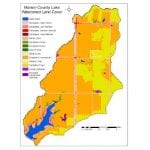
Landuse/landcover map of the watershed for Marion County Lake.
Seven students – from two colleges and three different majors – successfully completed the NRES capstone course in Fall 2018. Faculty advisors were Dr. Colby Moorberg (Agronomy) and Dr. Stacy Hutchinson (Biological & Agricultural Engineering).
Students worked on two different projects including “Marion County Park and Lake Citizen Science Project” and “Studying Potential Effects of Changing Climate and Changing Land Cover on Marion County Lake.” Project reports and scientific poster presentations can be viewed and downloaded from the NRES website.
Congratulations to students Ryan Burns (Agronomy), Ryan Buss (Park Management & Conservation), Hunter Carter (Agronomy), Tyler Clements (Park Management & Conservation), Thomas Giordano (Park Management & Conservation), Olivia Haney (Chemistry), and Lawrence Weigel (Agronomy).
NRES Seminar Series Update

Dr. Katherine Nelson presented “Challenges in Adapting to Urban Flooding” on October 4, 2018.
The Fall 2018 NRES Seminar Series featured guest presentations by four K-State faculty researchers. Special thanks to Dr. Ryan Sharp (Department of Horticulture and Natural Resources), Dr. Nathan Nelson (Department of Agronomy), Dr. Katherine Nelson (Department of Geography), and Dr. Gaea Hock (Department of Agricultural Communications and Education) for their terrific talks.
The seminar series helps us achieve our student learning outcomes by expanding students broad-based knowledge of natural resources/environmental science and by illustrating the commonalities (and differences) in academic perspectives for studying and solving contemporary natural resources issues.
This series, which continues to grow in popularity since its inception in Spring 2014, is focused on undergraduate students and was established to help build a sense of community, an appreciation for the breadth and depth of issues and approaches, and awareness of current research in natural resources and environmental science fields.
Spring 2018 Student Capstone Projects

Acquiring a sediment core from Marion County Lake in Marion County, Kansas.
Ten students – from three colleges and seven different majors – successfully completed the NRES capstone course in Spring 2018. Faculty advisors were Dr. John Harrington, Jr. (Geography), Dr. Abby Langston (Geography), and Dr. Vahid Rahmani (Biological & Agricultural Engineering).
Students worked on three different projects including “Influences of Nutrient Accumulation, Sedimentation Loading, and Organic Matter on Water Quality in Marion County”, “Marion County Park and Lake Sediment and Water Quality Study”, and “Identification of Sediment Sources in the Tributaries of Marion County Park and Lake to Develop Future Erosion Management Plan.” Project reports and scientific poster presentations can be viewed and downloaded from the NRES website.
Congratulations to students Jacob Allen (Biological & Agricultural Engineering), Charles Balkenbusch (Geology), Alan Ddamulira (Biological & Agricultural Engineering), Hannah Gerardy (Agronomy), Colin Keller (Geography), Lucas Linder (Agricultural Economics), Cole Maddox (Agricultural Technology & Management), Elisa Trigo (Animal Sciences), Hannah Wallace (Agronomy), and Tessa Zee (Agronomy).
NRES Seminar Series Update
The Spring 2018 NRES Seminar Series featured guest presentations by five researchers. Special thanks to Matt Meyerhoff (USDA-NRCS), Dr. Audrey Joslin (Geography), Dr. Marie Weide (Geography), Dr. Karin Goldberg (Geology), Dr. Prathap Parameswaran (Civil Engineering) for their thought-provoking talks and discussion.
The seminar series helps us achieve our student learning outcomes by expanding students broad-based knowledge of natural resources/environmental science and by illustrating the commonalities (and differences) in academic perspectives for studying and solving contemporary natural resources issues.
This series, which continues to grow in popularity since its inception in Spring 2014, is focused on undergraduate students and was established to help build a sense of community, an appreciation for the breadth and depth of issues and approaches, and awareness of current research in natural resources and environmental science fields.


